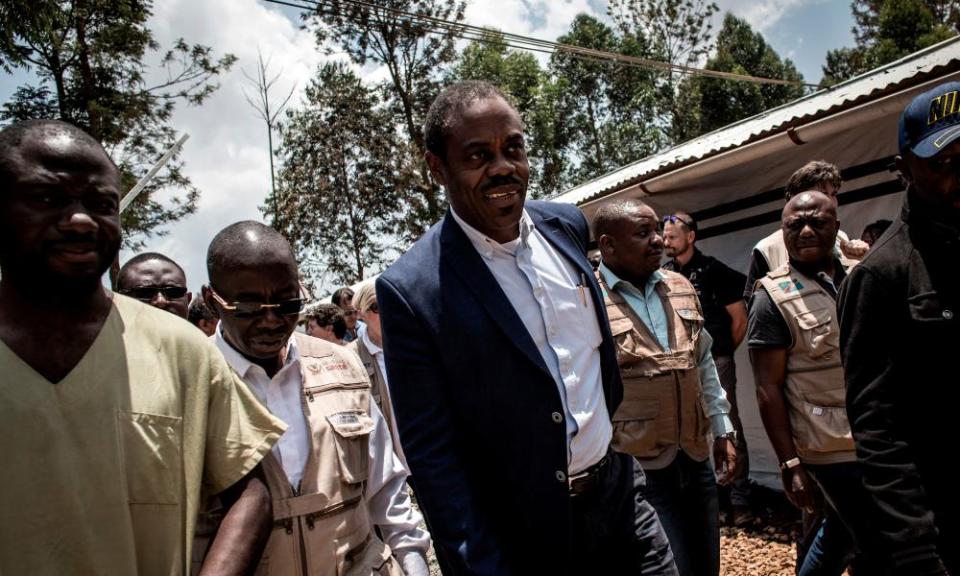Former minister arrested over alleged mismanagement of Congo Ebola funds

The former health minister for the Democratic Republic of the Congo has been arrested over the alleged mismanagement of $4.3m (£3.4m) dedicated to the Ebola response.
Oly Ilunga, who resigned as health minister in July having been removed from leading the Ebola response by President Félix Tshisekedi, has denied any wrongdoing.
Congolese police said that Ilunga was taken into custody on Saturday in Kinshasa following concerns that he planned to leave the country rather than face legal proceedings.
Related: Ebola in the DRC: everything you need to know
“Unfortunately, police received information about his disappearance with the aim of reaching Congo-Brazzaville,” the national police’s press service said.
On Monday, his lawyers, Guy Kabeya and Willy Ngashi, denied this, and said: “More than $1.9m of this sum was disbursed in the month after the resignation of Dr Ilunga so that he cannot [be expected to] answer for that at all. For the remaining, $2.4 million ... the accounting documents attest that this sum was exclusively used for the purpose of the fight against the Ebola virus.”
Illunga was appointed minster of health in December 2016 by the former president, Joseph Kabila, and criticised the World Health Organization’s (WHO) plan to use an unlicensed vaccine against Ebola in his resignation letter.
He also objected to the decision to remove him as head of the team fighting Ebola, saying that he was being replaced by a committee that had interfered in the management of the response.
Ilunga was replaced as coordinator of the Ebola response team by Jean-Jacques Muyembe, director of the Congolese Institute of Biomedical Research in Kinshasa.
The Ebola outbreak was declared on 1 August 2018. As of 11 September this year, the Ministry of Health has recorded 3,099 cases (2,988 confirmed and 111 probable), including 2,074 deaths.
Of the total cases, 56% (1,737) were women, 29% (886) were under 18, and 5% (157) were health workers.
More than 200,000 people have been vaccinated against the disease in DRC, as well as health and frontline workers in Uganda, South Sudan, Rwanda and Burundi. Two treatments deployed as part of a clinical trial have been found to save nine of 10 lives if used at the optimum time.
Responders attempting to control the spread of the disease have carried out more than 89m screenings both inside DRC and at international borders to identify cases and treat those with symptoms.
Suspicion of health workers and insecurity have made the outbreak response challenging, especially in parts of the region which have been affected for decades by fighting between armed groups.
The WHO’s latest update shows that the rate of transmission has continued to ease in the last week, with 40 new confirmed cases reported in North Kivu and Ituri provinces. This is the lowest weekly incidence since March 2019. While these are encouraging indications, WHO warned that it remained too soon to tell if the trend would persist: “Emerging hotspots continue to pose challenges in terms of accessibility, insecurity, and violence. Surveillance indicators highlight that public health risks of further spread remain very high.”
Last month WHO called for partners to respond at “full force” to address “one of the largest and most complex humanitarian crises in the world”.
Donors have provided more than $150m (£120m) to combat Ebola to date. The WHO is appealing for further resources to fund the response through to December 2019.

 Yahoo News
Yahoo News 